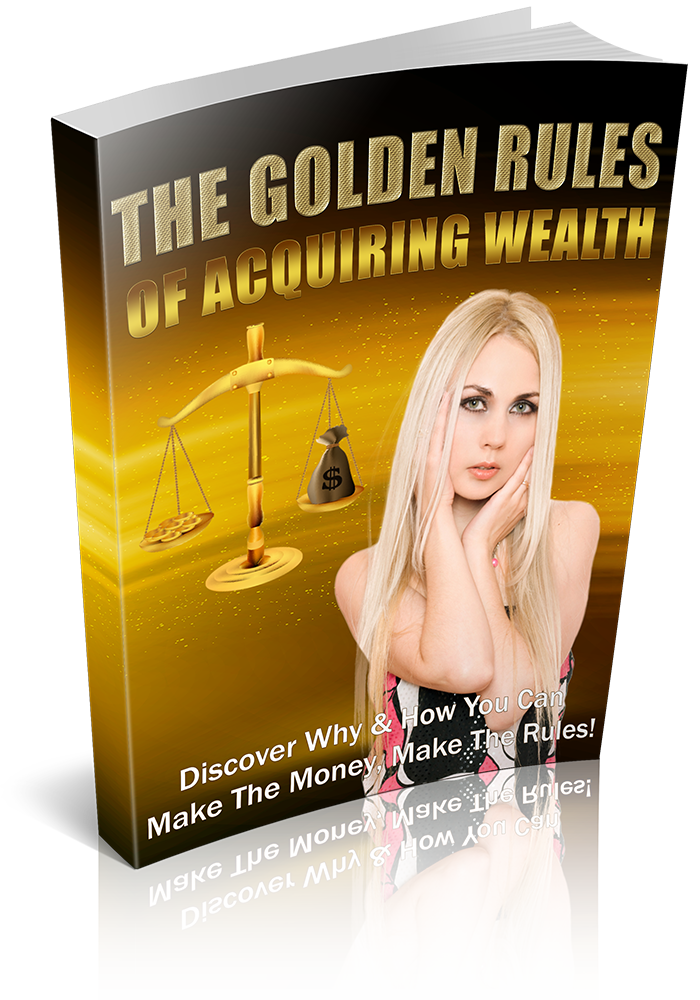

by JJ Jennings
The Golden Rules of Acquiring Wealth, n the United States where there is more land than people, it is not at all difficult for persons in good health to make money.
USD $1.88
In the United States where there is more land than people, it is not at all difficult for persons in good health to make money. In this comparatively new field there are so many avenues of success open, so many vocations which are not crowded, that any person of either sex who is willing, at least for the time being, to engage in any respectable occupation that offers, may find lucrative employment.
Those who really desire to attain independence, have only to set their minds upon it, and adopt the proper means, as they do in regard to any other object which they wish to accomplish, and the thing is easily done. But however easy it may be found to make money, I have no doubt many of my hearers will agree it is the most difficult thing in the world to keep it. The road to wealth is, as Dr. Franklin truly says, “as plain as the road to the mill.” It consists simply in expending less than we earn; that seems to be a very simple problem. Mr. Micawber, one of those happy creations of the genial Dickens, puts the case in a strong light when he says that to have annual income of twenty pounds per annum, and spend twenty pounds and sixpence, is to be the most miserable of men; whereas, to have an income of only twenty pounds, and spend but nineteen pounds and sixpence is to be the happiest of mortals. Many of my readers may say, “we understand this: this is economy, and we know economy is wealth; we know we can’t eat our cake and keep it also.” Yet perhaps more cases of failure arise from mistakes on this point than almost any other. The fact is, many people think they understand economy when they really do not.
True economy is misapprehended, and people go through life without properly comprehending what that principle is. One says, “I have an income of so much, and here is my neighbor who has the same; yet every year he gets something ahead and I fall short; why is it? I know all about economy.” He thinks he does, but he does not. There are men who think that economy consists in saving cheese-parings and candle-ends, in cutting off two pence from the laundress’ bill and doing all sorts of little, mean, dirty things. Economy is not meanness. The misfortune is, also, that this class of persons let their economy apply in only one direction. They fancy they are so wonderfully economical in saving a half-penny where they ought to spend two pence, that they think they can afford to squander in other directions.
True economy consists in always making the income exceed the out-go. Wear the old clothes a little longer if necessary; dispense with the new pair of gloves; mend the old dress: live on plainer food if need be; so that, under all circumstances, unless some unforeseen accident occurs, there will be a margin in favor of the income. A penny here, and a dollar there, placed at interest, goes on accumulating, and in this way the desired result is attained. It requires some training, perhaps, to accomplish this economy, but when once used to it, you will find there is more satisfaction in rational saving than in irrational spending.
Here is a recipe which I recommend: I have found it to work an excellent cure for extravagance, and especially for mistaken economy. When you find that you have no surplus at the end of the year, and yet have a good income, I advise you to take a few sheets of paper and form them into a book and mark down every item of expenditure. Post it every day or week in two columns, one headed “necessaries” or even “comforts”, and the other headed “luxuries,” and you will find that the latter column will be double, treble, and frequently ten times greater than the former. The real comforts of life cost but a READ More>>>>>>>>>>>>>>>